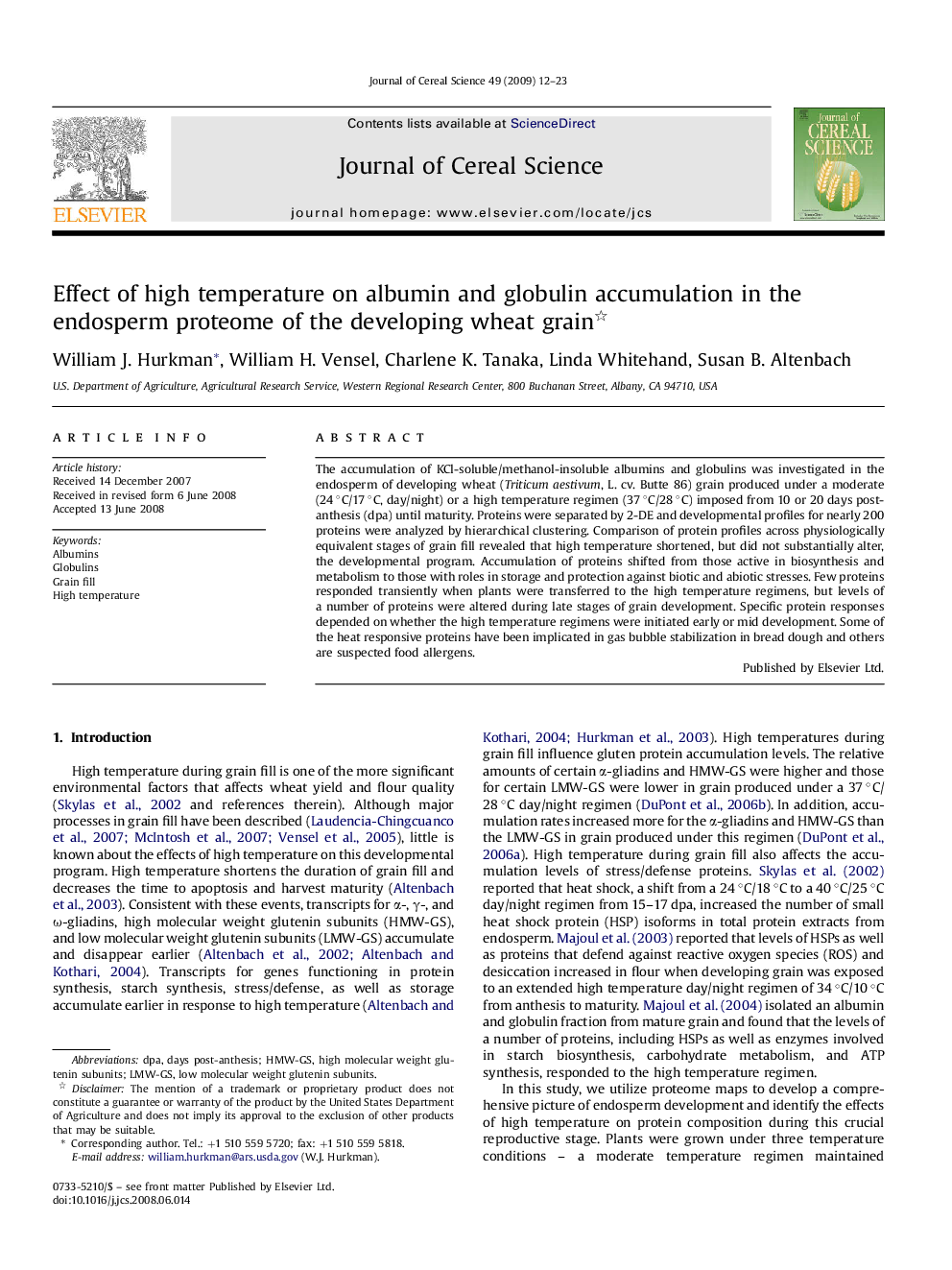| Article ID | Journal | Published Year | Pages | File Type |
|---|---|---|---|---|
| 4516524 | Journal of Cereal Science | 2009 | 12 Pages |
The accumulation of KCl-soluble/methanol-insoluble albumins and globulins was investigated in the endosperm of developing wheat (Triticum aestivum, L. cv. Butte 86) grain produced under a moderate (24 °C/17 °C, day/night) or a high temperature regimen (37 °C/28 °C) imposed from 10 or 20 days post-anthesis (dpa) until maturity. Proteins were separated by 2-DE and developmental profiles for nearly 200 proteins were analyzed by hierarchical clustering. Comparison of protein profiles across physiologically equivalent stages of grain fill revealed that high temperature shortened, but did not substantially alter, the developmental program. Accumulation of proteins shifted from those active in biosynthesis and metabolism to those with roles in storage and protection against biotic and abiotic stresses. Few proteins responded transiently when plants were transferred to the high temperature regimens, but levels of a number of proteins were altered during late stages of grain development. Specific protein responses depended on whether the high temperature regimens were initiated early or mid development. Some of the heat responsive proteins have been implicated in gas bubble stabilization in bread dough and others are suspected food allergens.
